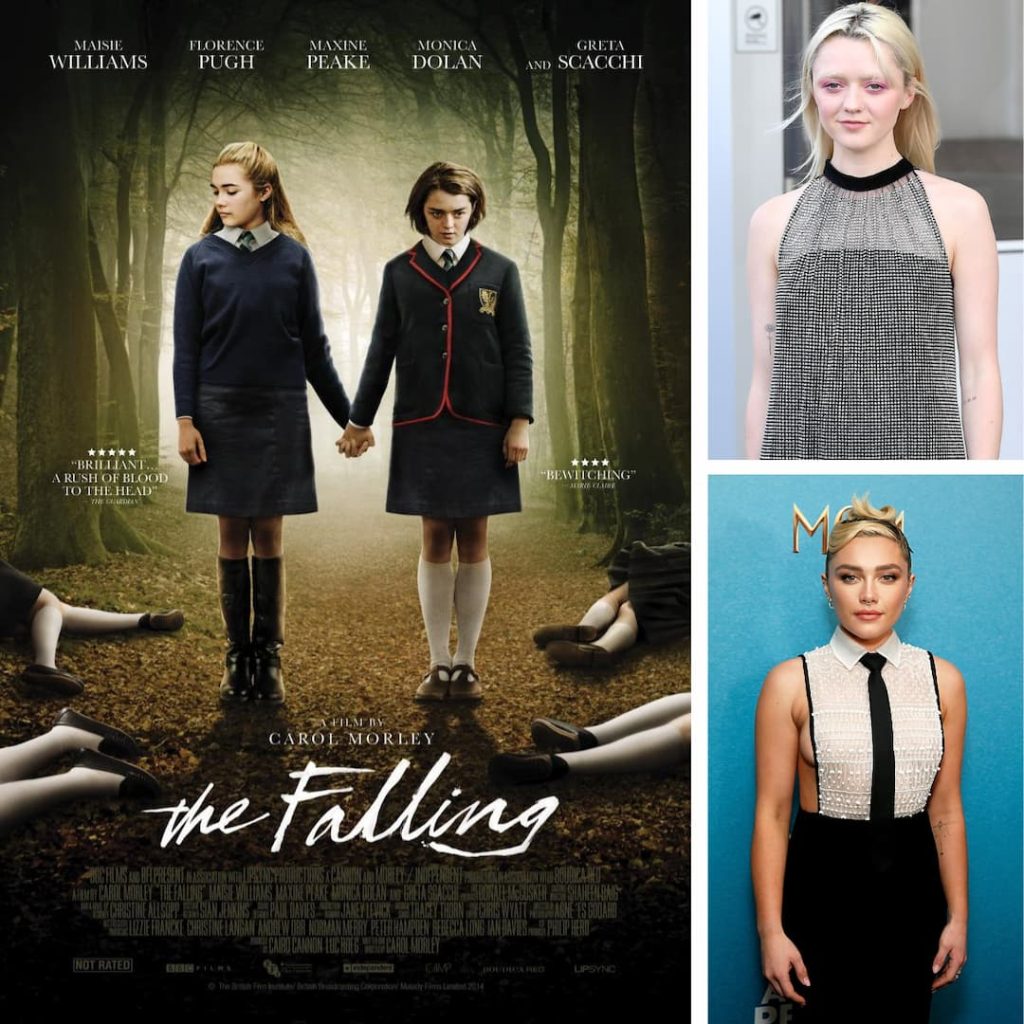“The Falling” is a British drama film that explores the themes of grief, sexuality, and mental illness. The movie, directed by Carol Morley, stars Florence Pugh, Maisie Williams, and Maxine Peake in the lead roles. The film was a critical success and received widespread acclaim for its cinematography, performances, and direction.
In this review article, we will delve into the various aspects of the movie, including its plot, cast, and genre. We will also answer some frequently asked questions about the film and provide a conclusion on why it is worth watching.
Released on April 11, 2014, “The Falling” grossed approximately $382,608 at the box office. The movie has an impressive rating of 6.0 on IMDb, and it was produced by Cairo Cannon and Luc Roeg. The screenplay was written by Carol Morley, and the film was directed by her as well.
If you are interested in thought-provoking dramas that delve into deep themes, then this article is a must-read for you.
Genres
“The Falling” is primarily categorized as a drama film. However, it also includes elements of mystery, psychological thriller, and coming-of-age genres. The movie explores the inner lives of teenage girls who are dealing with complex issues such as grief, sexuality, and mental illness.
Storyline
“The Falling” is set in an all-girls school in rural England in 1969. The story centers around two friends, Lydia (Maisie Williams) and Abbie (Florence Pugh). The two girls share a deep bond and are inseparable. They both have a passion for music and are part of the school choir.
However, tragedy strikes when Abbie suddenly collapses and dies. Lydia is devastated by the loss of her friend and becomes increasingly withdrawn. She starts to experience fainting spells, which become contagious and soon start to affect other girls in the school. As the epidemic spreads, the school authorities struggle to understand what is happening and how to stop it.
The film explores the various themes of grief, sexuality, and mental illness. Lydia’s grief over Abbie’s death is portrayed in a haunting and visceral manner. The film also explores Lydia’s emerging sexuality and her relationship with her mother, who is a free-spirited feminist.
The plot takes a mysterious turn when it is revealed that Lydia’s fainting spells are related to her suppressed emotions and her connection with Abbie. The film ends on a surreal note, leaving the audience with a sense of ambiguity and intrigue.
Top Cast
“The Falling” features an impressive cast, including some of the most talented young actors in the industry. The lead roles are played by Florence Pugh (Abbie), Maisie Williams (Lydia), and Maxine Peake (Eileen). Other notable cast members include Anna Burnett, Greta Scacchi, and Monica Dolan.
Here is a list of the top cast in “The Falling” movie:
- Florence Pugh as Abbie Mortimer
- Maisie Williams as Lydia Lamont
- Maxine Peake as Eileen Lamont
- Anna Burnett as Emily
- Greta Scacchi as Miss Alvaro
- Monica Dolan as Miss Mantel
- Rose Caton as Titch
- Lauren McCrostie as Sue
- Katie Ann Knight as Keira
- Evie Hooton as Sandra
Each member of the cast delivers a standout performance, contributing to the film’s success and acclaim.
Questions and Answers
Q: What makes “The Falling” stand out from other coming-of-age dramas?
A: “The Falling” is unique in its approach to the genre of coming-of-age drama. It explores complex themes such as grief, sexuality, and mental illness in a nuanced and thought-provoking manner. The film is also visually stunning, with beautiful cinematography and a haunting score.
Q: What is the significance of the film’s setting in 1969?
A: The setting of the film in 1969 is significant as it provides a historical context for the story. This was a time of social change and upheaval in England, with the emergence of feminist and countercultural movements. The film explores these themes through the characters of Lydia and her mother, who are both grappling with the changing times.
Q: What is the meaning behind the fainting spells that affect the girls in the school?
A: The fainting spells in the film are a metaphor for the suppressed emotions and repressed desires of the characters. The epidemic spreads as the girls become more and more disconnected from their inner selves and their relationships with each other. The film suggests that these fainting spells are a manifestation of the girls’ need to express themselves and connect with their emotions.
Q: How does the film explore the theme of sexuality?
A: The film explores the theme of sexuality through the character of Lydia, who is coming to terms with her own desires and the expectations of society. Lydia’s relationship with Abbie is hinted at as being more than just a friendship, and her relationship with her mother is complicated by her mother’s feminist views. The film portrays sexuality as a complex and often taboo subject that is difficult for the characters to navigate.
Q: What is the significance of the film’s surreal ending?
A: The film’s surreal ending is open to interpretation and has been the subject of much debate among viewers. Some interpret it as a metaphor for the characters’ transcendence to a higher plane of existence, while others see it as a commentary on the limitations of the characters’ understanding of the world around them. The ending is significant as it leaves the audience with a sense of ambiguity and intrigue.
Conclusion
Overall, “The Falling” is a beautifully crafted film that explores complex themes with nuance and sensitivity. The performances by the talented cast are outstanding, and the cinematography and score are hauntingly beautiful. The film is a must-watch for anyone interested in coming-of-age dramas that tackle difficult subjects.
We highly recommend “The Falling” to anyone looking for a thought-provoking and visually stunning film that delves into the inner lives of young women. The film is a testament to the talent of its director and cast and is sure to leave a lasting impression on its viewers.

